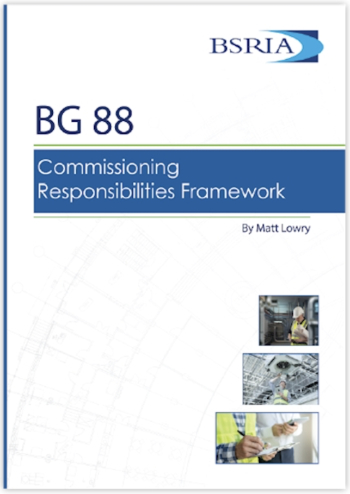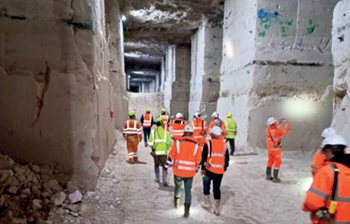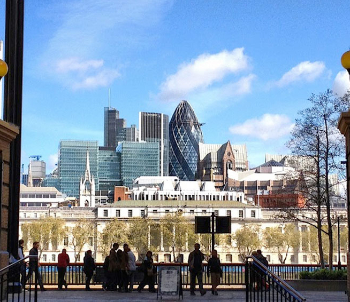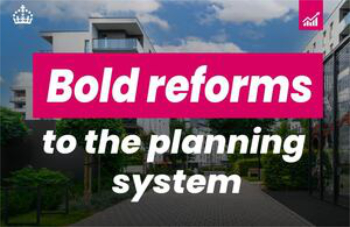Escalation
Civil Engineering Procedure, 7th edition, published by the Institution of Civil Engineers (ICE) defines ‘escalation’ as an: 'Increases (or decreases) in the costs of labour or materials due to inflation (or recession and deflation).'
Some contracts make provisions for contract price adjustment to allow for the effects of escalation based on data about changes in the cost of commodities, labour, fuel and so on. Such allowances might be referred to as ‘fluctuations’ as there is a fluctuating price in the contract (although fluctuations generally also allow for changes in taxation and increases in head office or administrative costs).
On smaller projects of a short duration, the contractor may be expected to have taken the effects of escalation into account when calculating their price, and they may be able to hold sub-contractors and suppliers to agreed prices for the duration of the contract.
On larger projects, typically lasting more than a year, the contractor may be asked to tender based on prices at an agreed base date, and then the contract makes provisions for escalation to specified items over the duration of the project, such as fuel, steel and so on.
Determining the actual amount of escalation for each item would be very time consuming, and so calculations are generally based on agreed indices, such as public records, JCT bulletins and so on.
Escalation can be caused by issues such as:
- An overheating construction industry.
- Natural disasters.
- Exchange rate changes.
- Changes to regulations.
- Supply problems.
- Labour shortages.
- Inflation in the wider economy, such as fuel price increases or wage increases.
- Global economic conditions.
Escalation clauses put the client at risk, as the final price is not known when the contract is agreed. It is sensible therefore for clients to forecast likely escalation during the course of the project and to make allowances for this, with a contingency provision.
Significant escalation which has not been allowed for can result in the scope of projects being reduced, and can even bring projects to a halt.
However, if there were no escalation provisions, the contractor would have to bear all the risk of price changes, and this would be reflected in their tender.
NB ICMS: Global Consistency in Presenting Construction Life Cycle Costs and Carbon Emissions, 3rd edition, November 2021, published by the ICMS (International Cost Management Standard) Coalition, defines escalation as: ‘A positive or negative factor or rate reflecting an estimate of differential increase/decrease in the general price level for a particular commodity, or group of commodities, or resources (ISO 15686-5).’
See also: Escalation clause and Fluctuations.
[edit] Related articles on Designing Buildings
Featured articles and news
Commissioning Responsibilities Framework BG 88/2025
BSRIA guidance on establishing clear roles and responsibilities for commissioning tasks.
An architectural movement to love or hate.
Don’t take British stone for granted
It won’t survive on supplying the heritage sector alone.
The remarkable story of a Highland architect.
The Constructing Excellence Value Toolkit
Driving value-based decision making in construction.
Meet CIOB event in Northern Ireland
Inspiring the next generation of construction talent.
Reasons for using MVHR systems
6 reasons for a whole-house approach to ventilation.
Supplementary Planning Documents, a reminder
As used by the City of London to introduce a Retrofit first policy.
The what, how, why and when of deposit return schemes
Circular economy steps for plastic bottles and cans in England and Northern Ireland draws.
Join forces and share Building Safety knowledge in 2025
Why and how to contribute to the Building Safety Wiki.
Reporting on Payment Practices and Performance Regs
Approved amendment coming into effect 1 March 2025.
A new CIOB TIS on discharging CDM 2015 duties
Practical steps that can be undertaken in the Management of Contractors to discharge the relevant CDM 2015 duties.
Planning for homes by transport hubs
Next steps for infrastructure following the updated NPPF.
Access, history and Ty unnos.
The world’s first publicly funded civic park.
Exploring permitted development rights for change of use
Discussing lesser known classes M, N, P, PA and L.
CIOB Art of Building photo contest 2024 winners
Fresco School by Roman Robroek and Once Upon a Pass by Liam Man.
























Comments
[edit] To make a comment about this article, or to suggest changes, click 'Add a comment' above. Separate your comments from any existing comments by inserting a horizontal line.